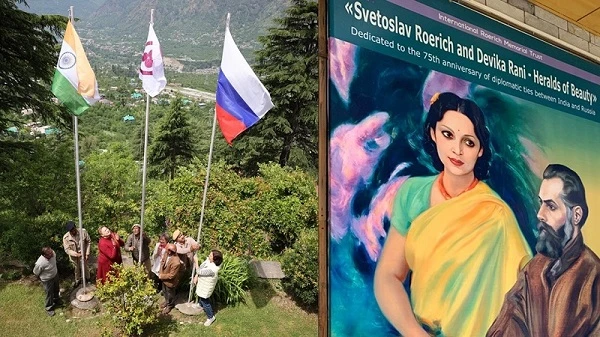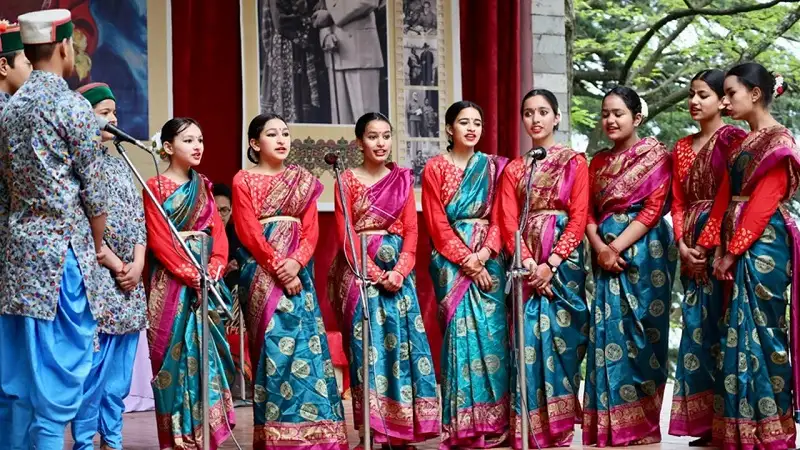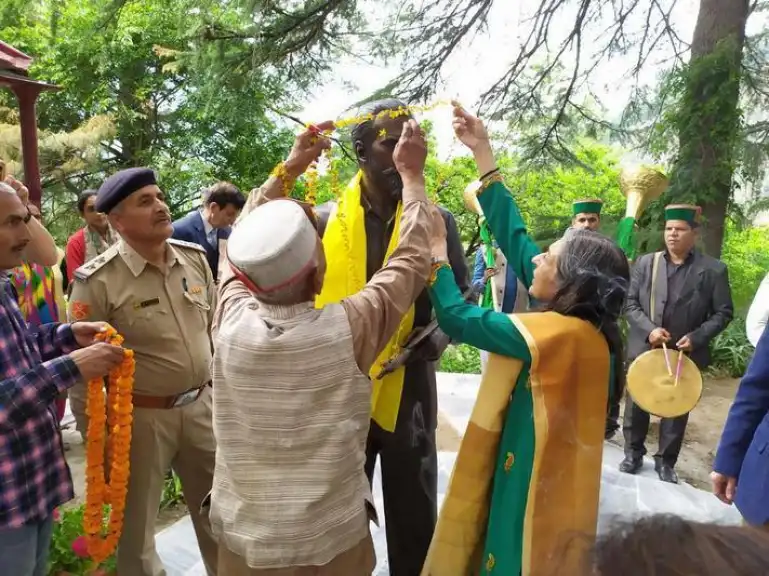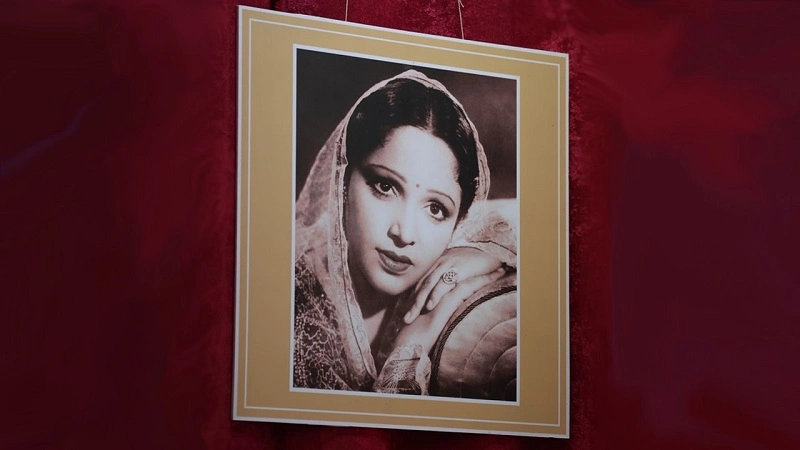The two-day annual India-Russia festival of culture celebrating the life of Devika Rani Roerich, the ‘first lady’ of the Indian cinema, was organised over the weekend in Himachal Pradesh’s Kullu valley in the foothills of the Himalayas.
Held at the museum estate of the Roerich family in Naggar on May 6-7, this year’s event was dedicated to the 115th anniversary of the birth of Devika Rani – a famous Indian film actress and the wife and muse of the Russian artist Svyatoslav Roerich.
“Devika Rani not only became her husband’s companion in the study of Indian culture and folklore, she was his muse. The artist created numerous portraits of his famous wife, full of inspiration and love. Their long and happy marriage has become a symbol of the unity of Indian and Russian culture,” a statement issued by the Russian Embassy in New Delhi said.

A thematic photo exhibition was opened in the exhibition hall of the International Roerich Memorial Trust (IRMT) as artists from the Green Theatre, young residents of Naggar and pupils of the Helena Roerich Children’s Academy of Arts, performed on the open stage.
The event was attended by representatives of the local authorities of Himachal Pradesh, public figures, diplomats and journalists.
Svyatoslav and his wife Devika Rani had also lived in the Indian south for many years, where their former estate Tataguni — 20 km from the city of Bangalore – is located. They bequeathed that their manor be turned into a scientific and cultural centre.
Last year, as India and Russia celebrated the 75th anniversary of their diplomatic relations, Russian Ambassador to India Denis Alipov spotlighted the significance of the cultural festival.

Alipov said that endeavours to preserve the legacy – by maintaining of estates and museums in Naggar or Tataguni, taking care of legendary paintings and conducting regular events – contribute tremendously to safeguarding a very special nature of ties between Moscow and New Delhi.
“Understanding of our proud unparalleled achievements – be it industrial, nuclear power, defence, space dimensions, etc. – would have been incomplete without realizing the shared universal humanitarian values that are behind them, which were in fact cultivated by the Roerichs here in India,” said Alipov.
As the life-sized sculptures of Svyatoslav Roerich (1904-1993) and Devika Rani (1908-1994) were unveiled at the Roerich House Museum in Naggar, Alipov mentioned that the link binds souls of the two nations, shaping the rock-solid foundations for the relationship to steadily grow further.
The first sculptural image of Svyatoslav Roerich — his bust — was opened several years ago in the southern Indian city of Trivandrum, which also has a street named after him.





















